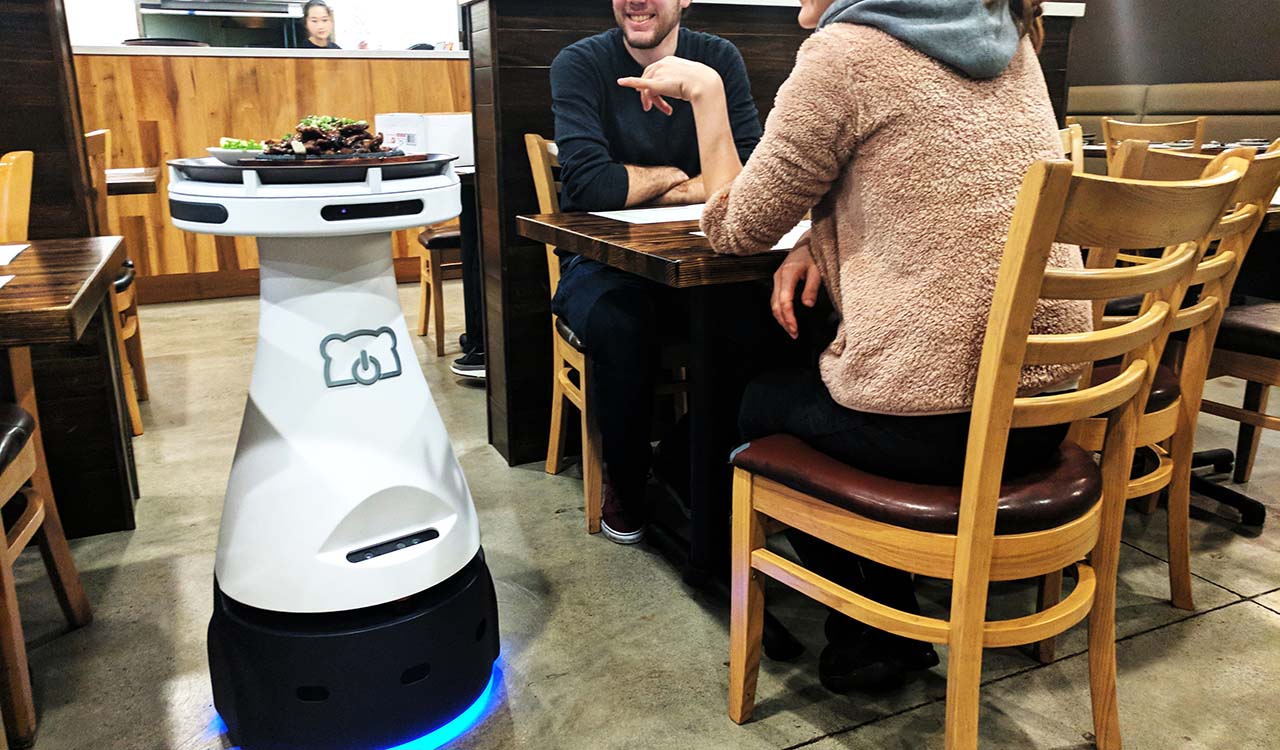13 automation innovations to inspire you to reset your strategy
We have gathered together our 2018 pick of the Top 13 automation disrupters that challenge traditional models. Our selection of global innovations showcases the exciting potential that automation presents for the future workforce and wider industries.
AI-enabled self-ordering kiosks offer a customized interactive experience

These kiosks take personalised experiences for customers one step further. In remembering loyalty points and favourite meals, a tailored service is available to consumers at a quick rate.
Airport trials real-time feedback system for bathrooms

Helsinki Airport benefit from realtime feedback. Such rapid information allows for faster solutions to problems, such as dirty toilets or lack of toilet roll.
Automated shopping platform streamlines retail

Another means of potentially reducing the need for retail staff, through this system cameras track customers to automate the payment process and help them skip long checkout queues.
Automated system translates between sign language and English

This system allows for real-time translation of sign language into written words, affording easier communication between hearing and hearing-impaired people.
Autonomous electric ferry can be called like an elevator

The ferry enables time-saving public transport without the expense of a driver. Naturally, this innovation could extend to other modes of transport as well, highlighting the versatility of much automated technology.
Autonomous trolley follows shoppers around store

This trolley can follow individuals according to their voice, direct customers to specific items, and even alert them to coupons/discount codes while shopping. The South Korean innovation is a personal shopper as and when you need it.
Blockchain technology reduces recruitment discrimination

The AI algorithm matches jobseekers with employers passed purely on data harvested from applications and sites like Twitter and LinkedIn, thereby hopefully reducing human discrimination in the hiring process.
EU project develops robotic cucumber harvester

Reducing food waste is a vital part of creating a more sustainable planet. The EU have therefore sponsored research into an automated robot that can identify and pick ripe cucumbers faster than humans.
Intelligent system makes homes reactive

An IoT system learns from the homeowner and enhances the environment according to their living patterns and external factors, adjusting heating, lighting, and security accordingly.
Media startup has a newsroom with no reporters

A newsroom offers fast news through its AI system that scans social media for potential stories. Available to consumers through an app, such an innovation could be ground-breaking in the fake news era by avoiding potential human bias.
Robot server delivers food in restaurants

This robot server takes over the job of delivering the food. Its adoption of the repetitive manual task leaves servers free to deliver customer service and interact with guests.
Startup uses AI to fully automate retail stores

AI and facial recognition technology enables retailers to create fully automated stores. With regard to the future workforce, the potential for completely unattended stores would be a drastic change.
Storage pod takes over home deliveries

Benefiting both consumer and retailer, the pod eliminates the need to wait in for parcels and creates better security for deliveries, as each pod is designed for an individual house.
Automation is one of the most pivotal technological trends for the modern workforce. Many fear that robotics and AI may replace existing roles; indeed, fifty percent of workforce activities could be replaced with current technology, let alone what might develop in the future. However, the reality is that even though some roles may be assumed into automation, this will simply free up other more creative jobs for humans to carry out. After all, the jobs most at risk of becoming automated are those involving repetitive tasks or low digital skill, often considered less rewarding jobs by the human workforce. Automation could actually reveal more exciting prospects for the future of work; McKinsey predicts that sixty-five percent of today’s primary school children will have jobs that don’t even exist yet. Find out ways to satisfy shoppers’ demand for convenience, break communication barriers and meet Penny, the robot who might be serving your next meal.
Robot server delivers food in restaurants

A California startup has developed a robot that delivers food and clears tables in restaurants

